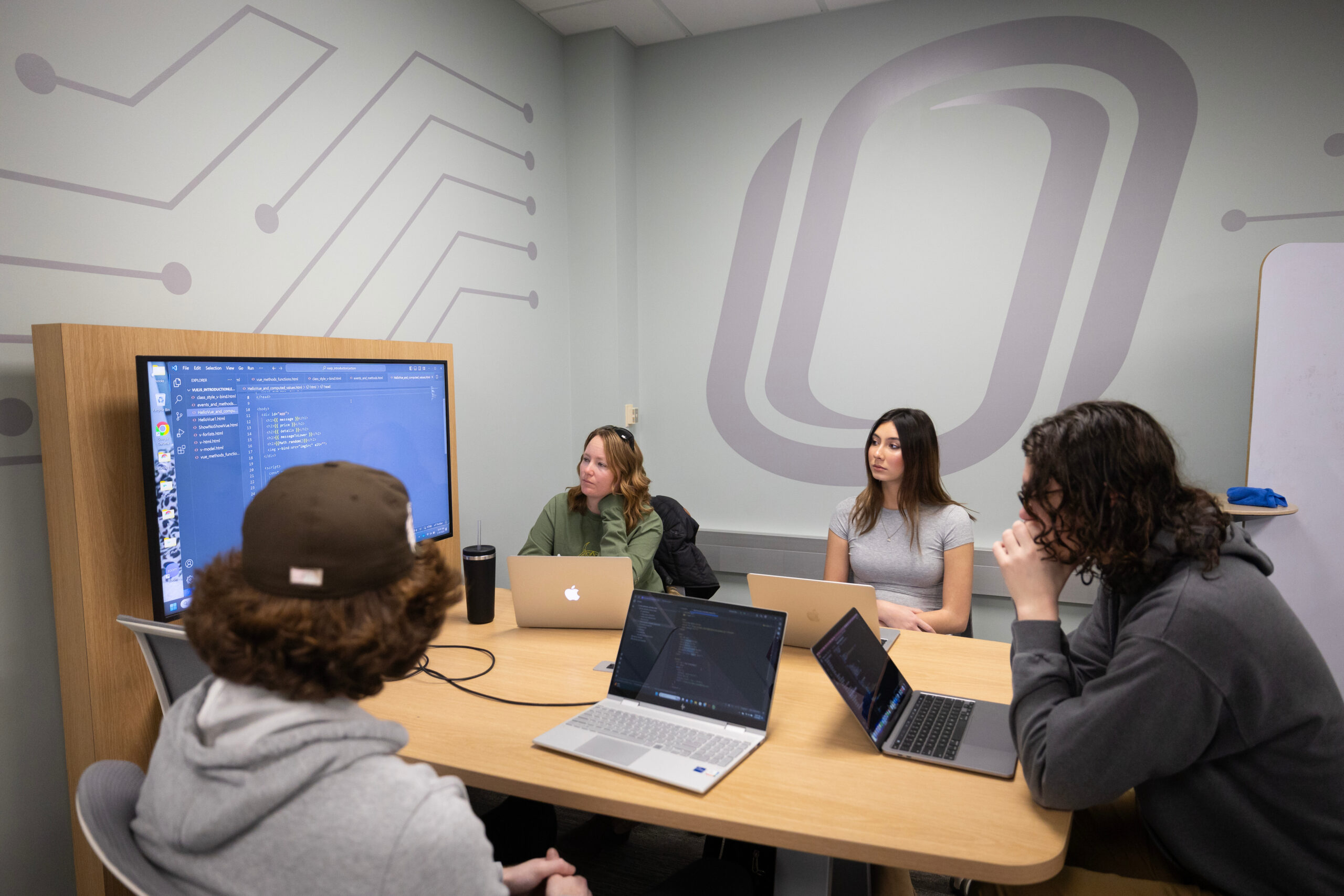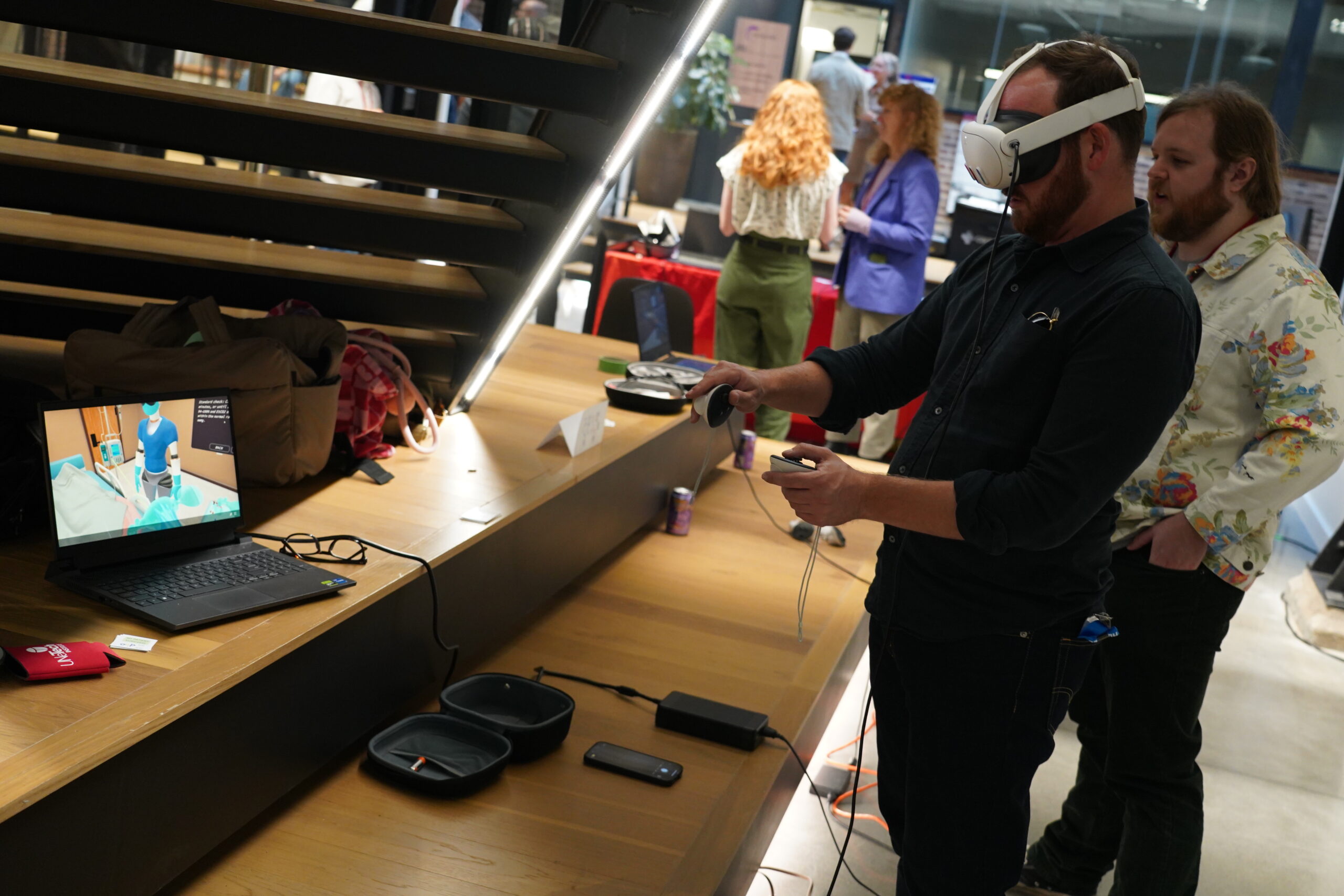Alumni of the University of Nebraska at Omaha added roughly $2.4 billion to Omaha’s economy in 2024, while also supporting about 12,500 local jobs with their spending alone. That’s according to a new economic impact study from the university analyzing how nearly 80,000 local alumni contribute to the city.
“Our gross domestic product in the Omaha metro area is … about $93 billion, give or take,” said Christopher Decker, the UNO economics professor behind the study. So the alumni’s contribution is “not trivial.”
Neither is the estimated number of local jobs supported by UNO graduates’ spending. While 12,500 may seem like a relatively small number, “in Omaha, the total number of workers in the construction industry is about 5,600, according to the Bureau of Labor Statistics,” Decker said. “So our total job support is actually bigger than the entire construction industry’s jobs in the metro area.”
Decker has done other economic impact research, including for UNO’s College of Business Administration, where he also studied the local effect of its graduates. That’s what prompted Anthony Flott, executive director of the UNO Alumni Association, to request a report for all alumni of the university.
Over the years, Flott had seen an anecdotal increase in university pride among alumni. He hoped that Decker’s work could add concrete data to their local impact. “This is a place where I’ve been going since I was a kid,” Flott said.
“I came here to play football in 1985. I got my degrees here. I’ve worked here for 32 years. I’ve seen that pride build and build and build — and that’s a qualitative report,” he said. “I wanted some quantitative data to show how much UNO graduates mean to the city, so this report got it.”
College value and brain drain
For Decker, it was also an opportunity to take a closer look at an evergreen Nebraska issue: workers leaving the state for greener pastures. “Given the concern over things like brain drain, and concern about young people leaving the area, it seemed like a reasonable assessment to make,” he said. “How much of an impact does a UNO degree have on the broader economy?”
Using median income data from the U.S. Census Bureau, Decker calculated the earnings difference between degree levels. For example, a bachelor’s degree holder in the Omaha metro area earns roughly $21,000 more than a high school graduate with no college degree. That difference translates to more spending power.
Compounded by more than 55,000 UNO alumni with a bachelor’s degree, that results in a $1.8 billion addition to the Omaha metro’s economy in 2024 from alumni spending. That’s most of the total $2.4 billion impact of UNO graduates.
For Decker, that’s an important figure. In a time when many are questioning the value of a college education, the earning power of a bachelor’s degree — and its value to local economies — seems to hold up.
Meanwhile, many UNO alumni have decided to stay local: Almost 67% are still living in Nebraska five years after graduation, according to the alumni association. That’s reflected in the tax base of UNO graduates, estimated by Decker as part of this study. In 2024, alumni paid almost $1 billion in taxes — also driving home the importance of UNO to the metro area.
“UNO is partially funded by state dollars,” Flott said. “And if you look at the tax revenue that we pay, you can look at that as a sort of return on investment that the state gets from the dollars that it provides to the (University of Nebraska) system.”
Potential for future studies
The study also raises a variety of questions: What is the value of a bachelor’s or master’s degree across different industries? Where are a third of UNO graduates going when they leave Nebraska? And will Nebraska continue to retain such a high amount of its alumni after graduation?
Those questions are top of mind for Decker, who wants to continue economic impact studies to better track and understand the data. “If the overall trends start declining, then the question becomes, ‘What is it about the Omaha economy that’s not retaining the existing two thirds (of UNO alumni after five years)?’” Decker said. “I do think that a two-thirds retention of UNO grads in the Omaha area is likely to hold up (and) could even increase.”
Flott is also interested in follow-up studies, maybe on a two-year cycle. More studies will likely mean, instead of just relying on Census data, actually going out and doing more granular surveying of the Omaha metro economy.
“Every year, we add approximately 3,000 graduates,” Flott said. “So two years from now, we will have added another 6,000 graduates, and we need to quantify what that impact is going forward.”
This data also changes how Flott approaches UNO alumni, especially when it comes to seeking out private investment into the university. “Getting back to that sense of pride for all these graduates, just look at how much you mean to Omaha, and that means, ‘Look at how much the university means,’” Flott said. “And we want to keep that going, so it makes a good case for support.”
Lev Gringauz is a Report for America corps member who writes about corporate innovation and workforce development for Silicon Prairie News.




